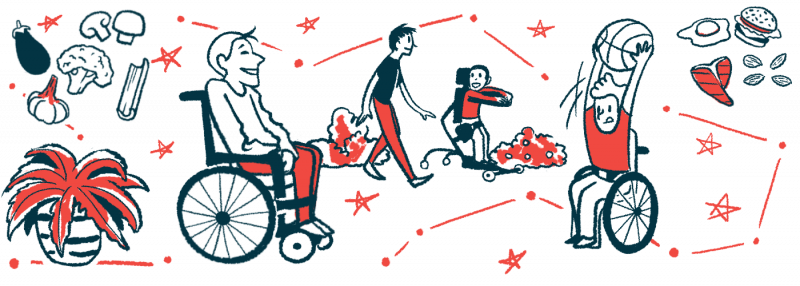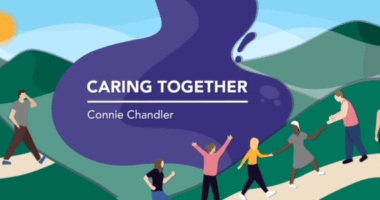Evrysdi Safe in Type 1, 2 Patients in US Access Program Before Approval

Evrysdi (risdiplam) was generally safe and well tolerated in a broader group of children and adults with spinal muscular atrophy (SMA) types 1 and 2 than that included in clinical trials supporting the therapy’s approval.
These were the findings of an analysis of safety data from the U.S. expanded access program (EAP; NCT04256265) launched in 2020 by Genentech to make Evrysdi available before its approval to eligible type 1 and 2 patients who had no satisfactory treatment options.
Genentech and its owner, Roche, market the therapy and were responsible for its development in collaboration with PTC Therapeutics and the SMA Foundation.
The study, “An expanded access program of risdiplam for patients with Type 1 or 2 spinal muscular atrophy,” was published in Annals of Clinical and Translational Neurology.
Evrysdi was approved in the U.S. in August 2020 to treat adults and children ages 2 months and older with all SMA types — making it the country’s third disease-modifying SMA therapy within four years, and the first to be taken orally and at home.
Given once daily as a flavored liquid by mouth or feeding tube, it works to increase the levels of the SMN protein, whose deficiency causes SMA.
Evrysdi’s approvals in the U.S. and elsewhere were based on positive top-line data from the ongoing Phase 2/3 FIREFISH (NCT02913482) and SUNFISH (NCT02908685) trials, which are testing the therapy in nearly 300 SMA patients.
FIREFISH enrolled infants, ages 2 to 7 months, with SMA type 1, a severe form. SUNFISH included children and young adults, aged 2 to 25, diagnosed with milder forms of the disease (type 2 or 3).
Top-line results showed Evrysdi was generally safe and defied SMA’s natural progression, either by allowing infants to attain motor milestones and prolonging their survival, or by significantly improving or stabilizing motor function in older patients.
The EAP, which ran from April 2020 to May 2021, was meant to provide access to the therapy for type 1 or 2 patients, 2 months and older, in the U.S. who “were ineligible for available and approved SMA treatments or could not continue treatment due to a medical condition, lack/loss of efficacy, or the COVID-19 pandemic,” the researchers wrote.
Roche, along with researchers at U.S. institutions involved in the EAP, analyzed the program’s data.
A total of 155 patients (73 with type 1 and 82 with type 2), were enrolled from 23 non-preselected sites across 17 U.S. states and received a weight-based dose of the oral therapy once a day. Most (96.1%) completed the program, defined as obtaining access to commercial Evrysdi, if desired.
The patients’ median age was 11 (range, 0–50 years), with 7.1% of them being toddlers (under age 2), nearly half (46.4%) being children (ages 2–11), 19.4% being adolescents (ages 12 –17), and more than a quarter (27.1%) being adults.
Most patients were white (85.8%), could not walk unaided (96.1%), and had been previously given an approved DMT (78%), most often Biogen’s Spinraza (nusinersen). Notably, 11 patients (7.1%) had been treated with both Spinraza and Novartis’ one-time gene therapy, Zolgensma.
Within the EAP, Evrysdi was received for a median of 4.8 months (range, 0.3–9.2 months), with most patients (71.6%) treated for at least three months and up to six months.
Safety data showed 73 patients (47.1%) reported at least one adverse event (AE), 14 (9%) had at least one serious AE, and 13 (8.4%) reported at least one AE that was severe to life-threatening.
The most frequently reported side effects included diarrhea (6.5%), fever (4.5%), and upper respiratory tract infection (3.2%), which are “consistent with AEs stated in the United States label for [Evrysdi],” the researchers wrote.
Gastrointestinal events were reported in 20% of patients, were mild in severity, and were resolved or were resolving at last follow-up.
Pneumonia (1.9%), acute respiratory failure, constipation, deep vein thrombosis (blood clot in a vein, usually the leg), and lower-than-normal potassium levels (1.3% each) were the most common serious side effects.
Adverse events were deemed related to Evrysdi in 25 patients (16.1%). In two cases, these were serious, but did not lead to treatment discontinuation. The most common were constipation, diarrhea, and headache, “which all recovered or resolved with ongoing treatment with [Evrysdi],” the research team wrote.
A greater proportion of type 1 patients experienced AEs relative to those with type 2 disease (56.2% vs. 39%), but the frequency of treatment-related AEs was similar between the two (8.4% vs. 7.7%).
Adverse events led to program discontinuation in three patients (1.9%). Two other participants left the study due to perceived lack of effectiveness, while another discontinued to try Zolgensma. No deaths were reported during the program.
There were no signs of eye toxicity, blood-related toxicity, or skin abnormalities previously observed with Evrysdi in animal studies.
These EAP findings highlight that Evrysdi’s safety profile “in patients with Type 1 and 2 SMA, including those who had previously received treatment with other DMTs, was consistent with the safety profiles of the pivotal [Evrysdi] trials,” the researchers wrote.
“Thus, this program provides additional data to support [Evrysdi] as a viable treatment option for pediatric and adult patients with SMA,” they said.
“With nearly every patient completing the program … a large part of the EAP’s success was attributed to the lack of predetermined sites, the program’s flexibility during the pandemic, and the oral at-home dosing of [Evrysdi],” the researchers wrote.
The post Evrysdi Safe in Type 1, 2 Patients in US Access Program Before Approval appeared first on SMA News Today.




